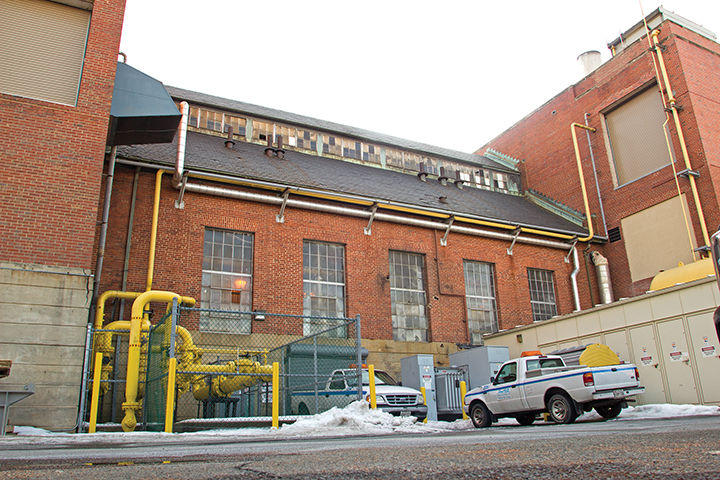Views expressed in opinion columns are the author’s own.
Last spring, students representing multiple student groups including the SGA Sustainability Committee, the Sustainability Cooperative and MaryPIRG, along with a leader from the Sunrise Movement and congressional candidate Mckayla Wilkes, attended the University of Maryland climate justice rally. Though it was a rainy Friday afternoon, the students maintained their energy chanting, carrying banners and marching for clean energy for all. The march brought them from the Main Administration Building on campus to a building many had never noticed before: the school’s very own natural gas power plant.
The university has seen many sustainable achievements in recent years, mostly led by student organizing and the Office of Sustainability. The office’s website even boasts a sustainable variety of purchased energy, with a minor amount of our energy coming from solar panels and wind off campus. But it also mentions our combined heat and power plant, the main source of energy for Maryland’s more than 300 facilities. The website states “affordable renewable energy options that can generate enough thermal energy for the university remains elusive, but we will continuously seek viable alternatives.”
Although this university could boast that it’s burning natural gas in the cleanest way possible, clean natural gas is a myth. Similar to “clean coal,” the truth about natural gas is that the entire process of fracking, extracting, transporting and burning the material is harmful and exploitative, as it releases greenhouse gas emissions at every stage. Claiming natural gas is clean ignores the methane released during drilling, which is more than 86 times as potent as carbon dioxide in the short term. Methane has caused about 25 percent of the man-made climate change we are experiencing.
Fracking also creates environmental injustices, as poor, rural communities are displaced by fracking sites and some pipelines even run through indigenous people’s sacred lands and contaminate groundwater. Additionally, transporting natural gas gives potential for spills and leaks, releasing more methane into the air and contributing to climate change.
The Student Government Association wrote a letter to the university to speed up its carbon neutrality goals from a previous 100 percent by 2050 to the same level by 2025. But without action by the university to decrease dependence on natural gas and expand clean energy, Maryland may be locked into another 30 years of business as usual — far longer than many believe we have to act on climate change. With a recent United Nations report stating that we may meet a major climate crisis in the next decade, we don’t have time to wait.
As the state’s flagship university and a member of the Big Ten conference, our transition to renewable energy could make waves across the country. It could also create opportunities for Maryland to join a coalition of universities already committed to 100 percent renewables, joining states like California in implementing truly progressive energy policy. Universities like Duke and UC Davis are investing in biogas and other more sustainable systems, while Harvard has an ambitious plan to go fossil fuel neutral by 2026 and fossil fuel-free by 2050. Renewables on campus would also encourage more research and innovation from students who have already shown interest in helping with the transition. These students have done work with carbon sequestration by algae and participating in the Department of Energy’s Collegiate Wind Turbine Competitions.
Campaigns like MaryPIRG’s “Fossil Free UMD” continue to put pressure on the administration to make a plan that would lead to independence from fossil fuels. Organizations are employing tactics like petitions, rallies and collecting personal testimony from other students. With activist groups such as the Sunrise Movement, Zero Hour and the Extinction Rebellion gaining momentum, and a global climate strike scheduled this September, there is no doubt students will continue to rally behind this issue.
Students are ready to take the next steps toward sustainability on campus, and this university’s administration needs to listen. Big change can’t happen overnight, but we also don’t have time to waste when taking on the climate emergency.
Sonja Neve is a senior environmental science and policy major. She can be reached at sonjaneve55@gmail.com.



